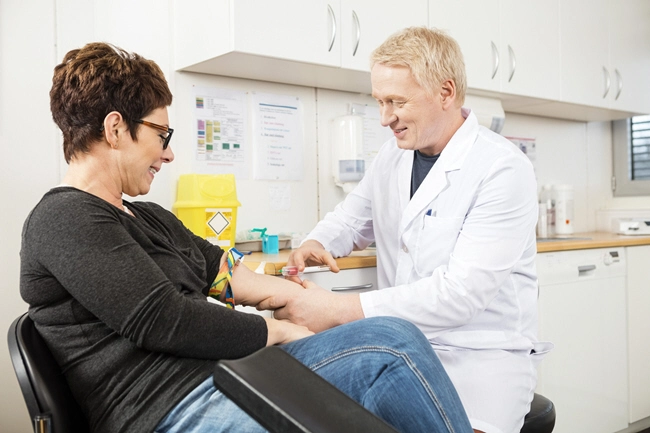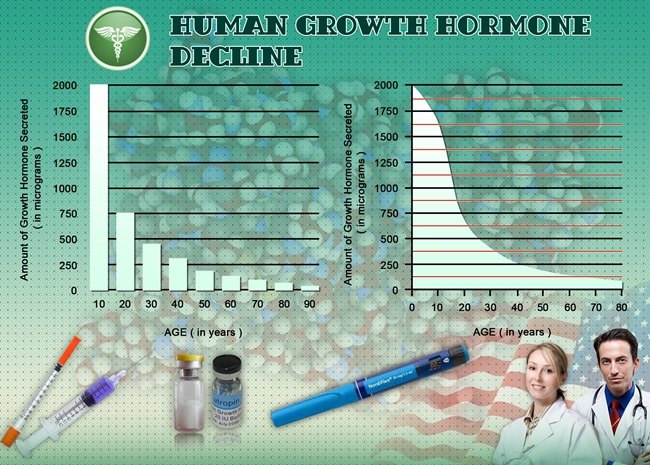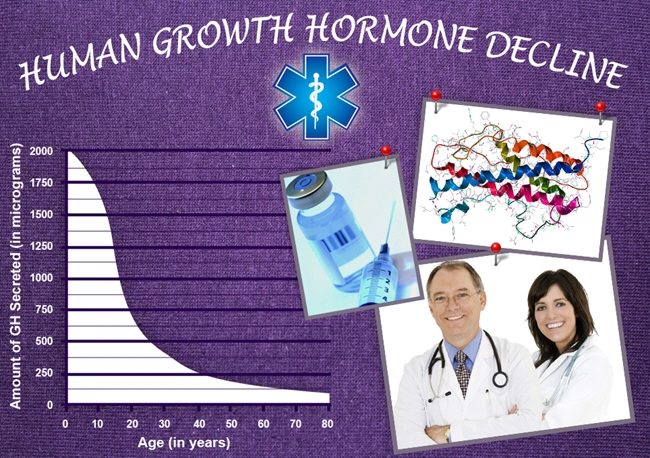
Introduction to Penile Sensitivity
Penile sensitivity is a critical aspect of male sexual health, influencing both physical and psychological well-being. As men age, changes in penile sensitivity can occur, impacting sexual function and satisfaction. This article delves into the medical science behind penile sensitivity and aging, providing American males with a thorough understanding of this important topic.
The Science of Penile Sensitivity
Penile sensitivity is primarily governed by the nerve endings located within the penis, particularly concentrated in the glans (head) and the foreskin. These nerve endings are responsible for transmitting sensory information to the brain, which interprets these signals as sensations of touch, pressure, and pleasure. The density and responsiveness of these nerve endings can vary among individuals, influenced by genetic factors, circumcision status, and overall health.
Aging and Its Effects on Penile Sensitivity
As men age, several physiological changes can affect penile sensitivity. One of the primary changes is a decrease in the number and sensitivity of nerve endings. This natural decline can lead to reduced tactile sensation, which may impact sexual arousal and orgasm intensity. Additionally, aging can lead to decreased blood flow to the penis due to vascular changes, further contributing to reduced sensitivity.
Medical Conditions and Penile Sensitivity
Certain medical conditions can exacerbate the decline in penile sensitivity associated with aging. Diabetes, for instance, can lead to peripheral neuropathy, a condition that damages nerves throughout the body, including those in the penis. Similarly, cardiovascular diseases can impair blood flow, further diminishing penile sensitivity. It is crucial for men to manage these conditions effectively to maintain optimal sexual health.
Lifestyle Factors and Penile Sensitivity
Lifestyle choices play a significant role in penile health and sensitivity. Smoking, excessive alcohol consumption, and a sedentary lifestyle can all contribute to reduced penile sensitivity. Conversely, maintaining a healthy diet, regular exercise, and avoiding harmful substances can help preserve nerve function and blood flow, thereby supporting penile sensitivity as men age.
Psychological Aspects of Penile Sensitivity
The psychological impact of reduced penile sensitivity should not be underestimated. Men may experience anxiety or depression as a result of changes in their sexual function, which can create a negative feedback loop, further diminishing sexual performance. Open communication with partners and seeking professional help, such as therapy or counseling, can be beneficial in addressing these psychological challenges.
Medical Interventions and Treatments
For men experiencing significant declines in penile sensitivity, various medical interventions may be available. Topical treatments, such as lidocaine or other numbing agents, can be used to manage hypersensitivity, while medications like phosphodiesterase inhibitors (e.g., Viagra) can improve blood flow, potentially enhancing sensitivity. In more severe cases, surgical options or nerve regeneration therapies may be considered.
Preventive Measures and Maintenance
Preventive measures are essential for maintaining penile sensitivity as men age. Regular check-ups with healthcare providers can help monitor and manage any underlying conditions that may affect penile health. Additionally, practicing good hygiene, using appropriate lubrication during sexual activity, and engaging in regular sexual activity can help maintain nerve function and sensitivity.
Conclusion: Embracing Aging with Knowledge and Care
Understanding the changes in penile sensitivity that come with aging is crucial for American males seeking to maintain their sexual health and well-being. By staying informed about the medical science behind these changes and adopting a proactive approach to health management, men can navigate the aging process with confidence and continue to enjoy a fulfilling sexual life.
Contact Us Today For A Free Consultation
Dear Patient,
Once you have completing the above contact form, for security purposes and confirmation, please confirm your information by calling us.
Please call now: 1-800-380-5339.
Welcoming You To Our Clinic, Professor Tom Henderson.

- Managing Penile Skin Conditions: Symptoms, Treatments, and Prevention Strategies [Last Updated On: February 21st, 2025] [Originally Added On: February 21st, 2025]
- Understanding the Psychological Toll of Penile Health Issues: A Comprehensive Overview for American Males [Last Updated On: March 1st, 2025] [Originally Added On: February 28th, 2025]
- Advancements in Penile Prostheses: Enhancing ED Treatment and Patient Satisfaction [Last Updated On: March 17th, 2025] [Originally Added On: March 17th, 2025]
- Penile Trauma: Emergency Care, Long-Term Management, and Latest Advances in Penis Science [Last Updated On: March 18th, 2025] [Originally Added On: March 18th, 2025]
- Testosterone's Crucial Role in Penile Health and Function for American Males [Last Updated On: March 19th, 2025] [Originally Added On: March 19th, 2025]
- Penile Enlargement: Safety, Efficacy, and Methods for American Males [Last Updated On: March 19th, 2025] [Originally Added On: March 19th, 2025]
- Penile Nerve Blocks: Enhancing Urological Surgery and Pain Management for American Males [Last Updated On: March 19th, 2025] [Originally Added On: March 19th, 2025]
- Optimal Penile Hygiene: Practices for Health and Well-being in American Males [Last Updated On: March 19th, 2025] [Originally Added On: March 19th, 2025]
- Lifestyle Factors Impacting Penile Health: Diet, Exercise, and More for American Males [Last Updated On: March 20th, 2025] [Originally Added On: March 20th, 2025]
- Understanding and Managing Penile Ulcers in American Males: Causes, Diagnosis, and Treatment [Last Updated On: March 20th, 2025] [Originally Added On: March 20th, 2025]
- Obesity's Impact on Penile Function: Vascular, Hormonal, and Psychological Effects [Last Updated On: March 21st, 2025] [Originally Added On: March 21st, 2025]
- Spinal Cord Injuries and Penile Function: Impacts and Management for American Males [Last Updated On: March 21st, 2025] [Originally Added On: March 21st, 2025]
- Chemotherapy's Impact on Penile Health: Effects, Management, and Long-term Considerations [Last Updated On: March 22nd, 2025] [Originally Added On: March 22nd, 2025]
- Medications and Penile Function: Impacts on American Males' Health [Last Updated On: March 22nd, 2025] [Originally Added On: March 22nd, 2025]
- Genetics of Penile Development: Insights and Advances for American Males [Last Updated On: March 22nd, 2025] [Originally Added On: March 22nd, 2025]
- Penile Vascular Health: Understanding, Preventing, and Treating Vascular-Related ED [Last Updated On: March 22nd, 2025] [Originally Added On: March 22nd, 2025]
- Penile Biopsy: Essential Diagnostic Tool for Urological Health in American Males [Last Updated On: March 22nd, 2025] [Originally Added On: March 22nd, 2025]
- Penile Skin Grafts: Indications, Procedures, and Outcomes for American Males [Last Updated On: March 22nd, 2025] [Originally Added On: March 22nd, 2025]
- Dietary Impact on Penile Health: Antioxidants, Omega-3s, and Nitrates [Last Updated On: March 23rd, 2025] [Originally Added On: March 23rd, 2025]
- Managing Penile Allergies: Symptoms, Diagnosis, and Effective Strategies for American Males [Last Updated On: March 23rd, 2025] [Originally Added On: March 23rd, 2025]
- Penile Prosthetics: Effective Solution for Severe Erectile Dysfunction in American Males [Last Updated On: March 23rd, 2025] [Originally Added On: March 23rd, 2025]
- Penile Ultrasound: Diagnosing Sexual Dysfunction in American Males [Last Updated On: March 24th, 2025] [Originally Added On: March 24th, 2025]
- Penile Girth's Impact on Sexual Satisfaction: Insights for American Males [Last Updated On: March 24th, 2025] [Originally Added On: March 24th, 2025]
- Understanding Penile Numbness: Causes, Diagnosis, and Treatment Strategies [Last Updated On: March 24th, 2025] [Originally Added On: March 24th, 2025]
- Chronic Diseases and Penile Health: Impacts and Management for American Males [Last Updated On: March 24th, 2025] [Originally Added On: March 24th, 2025]
- Penile Warts: Causes, Symptoms, Treatment, and Prevention for American Males [Last Updated On: March 24th, 2025] [Originally Added On: March 24th, 2025]
- Penile MRI: Advancing Diagnosis and Treatment in Men's Health [Last Updated On: March 24th, 2025] [Originally Added On: March 24th, 2025]
- Understanding Penile Rash: Types, Causes, and Effective Treatments for American Men [Last Updated On: March 25th, 2025] [Originally Added On: March 25th, 2025]
- Understanding Penile Discharge: Causes, Symptoms, and Treatment for American Males [Last Updated On: March 25th, 2025] [Originally Added On: March 25th, 2025]
- Penile Reconstruction: Techniques, Outcomes, and Psychological Impact on American Males [Last Updated On: March 25th, 2025] [Originally Added On: March 25th, 2025]
- Penile Vein Anatomy, Function, and Common Disorders: A Comprehensive Overview [Last Updated On: March 25th, 2025] [Originally Added On: March 25th, 2025]
- Understanding and Managing Penile Sensory Neuropathy in American Males [Last Updated On: March 25th, 2025] [Originally Added On: March 25th, 2025]
- Hormonal Imbalances and Their Impact on Penile Health in American Males [Last Updated On: March 25th, 2025] [Originally Added On: March 25th, 2025]
- Understanding Penile Discoloration: Causes, Symptoms, and Treatment Options for American Males [Last Updated On: March 25th, 2025] [Originally Added On: March 25th, 2025]
- Neurological Disorders' Impact on Penile Function: Insights and Management Strategies [Last Updated On: March 26th, 2025] [Originally Added On: March 26th, 2025]
- Understanding Penile Lesions: Types, Causes, and Medical Interventions for American Males [Last Updated On: March 26th, 2025] [Originally Added On: March 26th, 2025]
- Penile Lymphatic System: Functions, Disorders, and Health Management [Last Updated On: March 26th, 2025] [Originally Added On: March 26th, 2025]
- Understanding and Managing Penile Pain: Causes, Diagnosis, and Treatment Strategies [Last Updated On: March 26th, 2025] [Originally Added On: March 26th, 2025]
- Penile Blood Tests: A Vital Tool for Diagnosing Systemic Health Issues in Men [Last Updated On: March 26th, 2025] [Originally Added On: March 26th, 2025]
- Penile Piercings: Health Risks, Types, and Medical Advice for American Males [Last Updated On: March 26th, 2025] [Originally Added On: March 26th, 2025]
- Penile Arteries and Erection Health: A Comprehensive Guide for American Males [Last Updated On: March 26th, 2025] [Originally Added On: March 26th, 2025]
- Understanding Penile Swelling: Causes, Diagnosis, and Management for American Males [Last Updated On: March 27th, 2025] [Originally Added On: March 27th, 2025]
- Exploring Penile Sensitivity: Impact on Sexual Health and Function in American Males [Last Updated On: March 27th, 2025] [Originally Added On: March 27th, 2025]
- Understanding Penile Bleeding: Causes, Symptoms, and Emergency Care for American Males [Last Updated On: March 27th, 2025] [Originally Added On: March 27th, 2025]
- Penile Nerve Anatomy: Impact on Sexual Health and Function in American Men [Last Updated On: March 27th, 2025] [Originally Added On: March 27th, 2025]
- Penile Injuries: Types, Impact on Sexual Function, and Importance of Timely Treatment [Last Updated On: March 27th, 2025] [Originally Added On: March 27th, 2025]
- Radiation Therapy's Impact on Penile Health: Effects, Management, and Future Research [Last Updated On: March 27th, 2025] [Originally Added On: March 27th, 2025]
- Understanding Penile Itching: Causes, Symptoms, and Effective Treatments [Last Updated On: March 28th, 2025] [Originally Added On: March 28th, 2025]
- Understanding Penile Lumps: Types, Causes, and Management for American Males [Last Updated On: March 29th, 2025] [Originally Added On: March 29th, 2025]
- Penile Health and Fertility: Insights and Management for American Males [Last Updated On: March 29th, 2025] [Originally Added On: March 29th, 2025]
- Penile Sores: Causes, Symptoms, and Medical Interventions for American Males [Last Updated On: March 30th, 2025] [Originally Added On: March 30th, 2025]
- Understanding Penile Edema: Causes, Diagnosis, and Treatment Strategies for American Males [Last Updated On: March 30th, 2025] [Originally Added On: March 30th, 2025]
- Penile Health and Overall Well-being: Insights and Strategies for American Males [Last Updated On: March 30th, 2025] [Originally Added On: March 30th, 2025]
- Understanding and Treating Penile Redness: Causes, Symptoms, and Effective Solutions [Last Updated On: April 1st, 2025] [Originally Added On: April 1st, 2025]
- Understanding Penile Dermatitis: Symptoms, Causes, and Treatment for American Males [Last Updated On: April 2nd, 2025] [Originally Added On: April 2nd, 2025]
- Penile Health and Mental Well-being: Insights for American Males [Last Updated On: April 4th, 2025] [Originally Added On: April 4th, 2025]
- Penile Health and Partner Satisfaction: Insights for American Males [Last Updated On: April 5th, 2025] [Originally Added On: April 5th, 2025]
- Understanding Penile Blisters: Causes, Symptoms, and Treatment Options for Men [Last Updated On: April 7th, 2025] [Originally Added On: April 7th, 2025]
- Causes, Diagnosis, and Management of Penile Burning in American Males [Last Updated On: April 8th, 2025] [Originally Added On: April 8th, 2025]
- Penile Health and STI Prevention: A Comprehensive Guide for American Males [Last Updated On: April 8th, 2025] [Originally Added On: April 8th, 2025]
- Understanding Penile and Prostate Health: A Comprehensive Guide for American Males [Last Updated On: April 8th, 2025] [Originally Added On: April 8th, 2025]
- Penile Health Impact on Urinary Function: Insights for American Males [Last Updated On: April 8th, 2025] [Originally Added On: April 8th, 2025]
- Managing Penile Sensitivity Disorders: Causes, Diagnosis, and Treatment Options [Last Updated On: April 9th, 2025] [Originally Added On: April 9th, 2025]
- Understanding and Managing Penile Dryness: Causes, Symptoms, and Effective Treatments [Last Updated On: April 9th, 2025] [Originally Added On: April 9th, 2025]
- Understanding Penile Foreskin Health: Causes, Symptoms, and Care [Last Updated On: April 9th, 2025] [Originally Added On: April 9th, 2025]
- Penile Health as Cardiovascular Indicator: Study Insights for American Males [Last Updated On: April 11th, 2025] [Originally Added On: April 11th, 2025]
- Penile Health: Impact on Reproductive Wellness and Integrated Care Strategies [Last Updated On: April 12th, 2025] [Originally Added On: April 12th, 2025]
- Managing Penile Odor: Causes, Symptoms, and Effective Treatment Strategies for Men [Last Updated On: April 12th, 2025] [Originally Added On: April 12th, 2025]
- Penile Health and Hormonal Balance: A Comprehensive Guide for American Men [Last Updated On: April 13th, 2025] [Originally Added On: April 13th, 2025]
- Penile Health and Immune System: A Comprehensive Guide for American Men [Last Updated On: April 15th, 2025] [Originally Added On: April 15th, 2025]
- Understanding Penile Irritation: Causes, Symptoms, and Dermatological Treatments for American Men [Last Updated On: April 15th, 2025] [Originally Added On: April 15th, 2025]
- Penile Health and Sexual Function: Medical Insights and Holistic Management Strategies [Last Updated On: April 16th, 2025] [Originally Added On: April 16th, 2025]
- Penile Health and Endocrine Disorders: Causes, Symptoms, and Management Strategies [Last Updated On: April 18th, 2025] [Originally Added On: April 18th, 2025]









